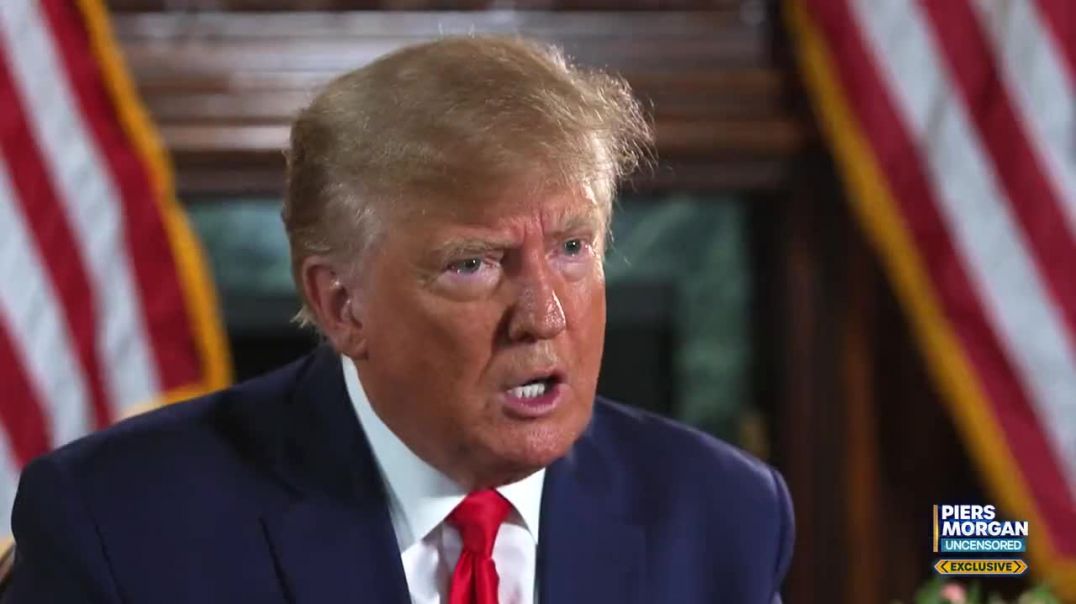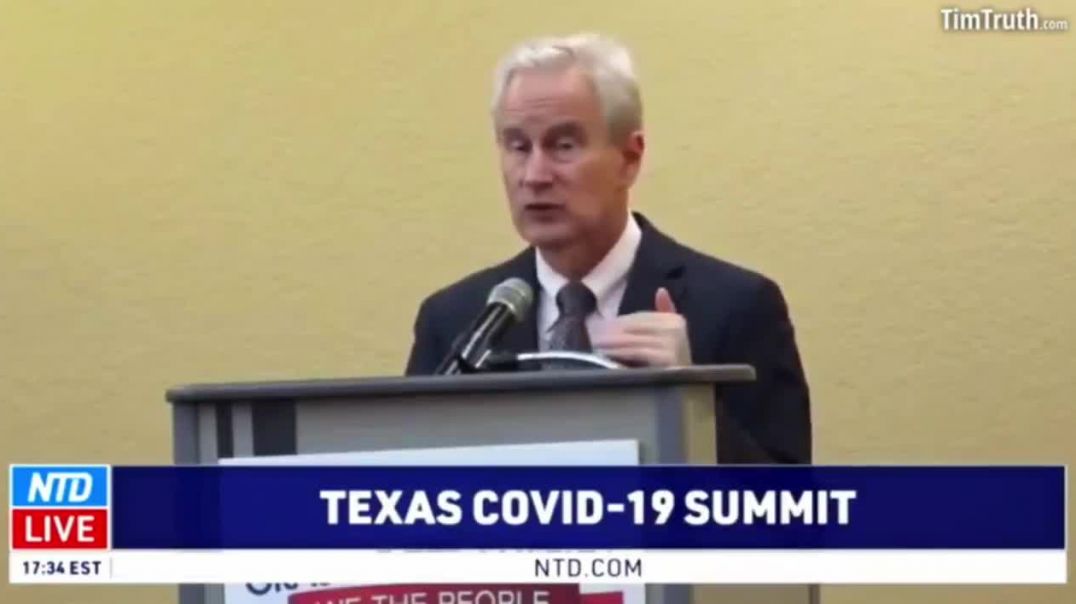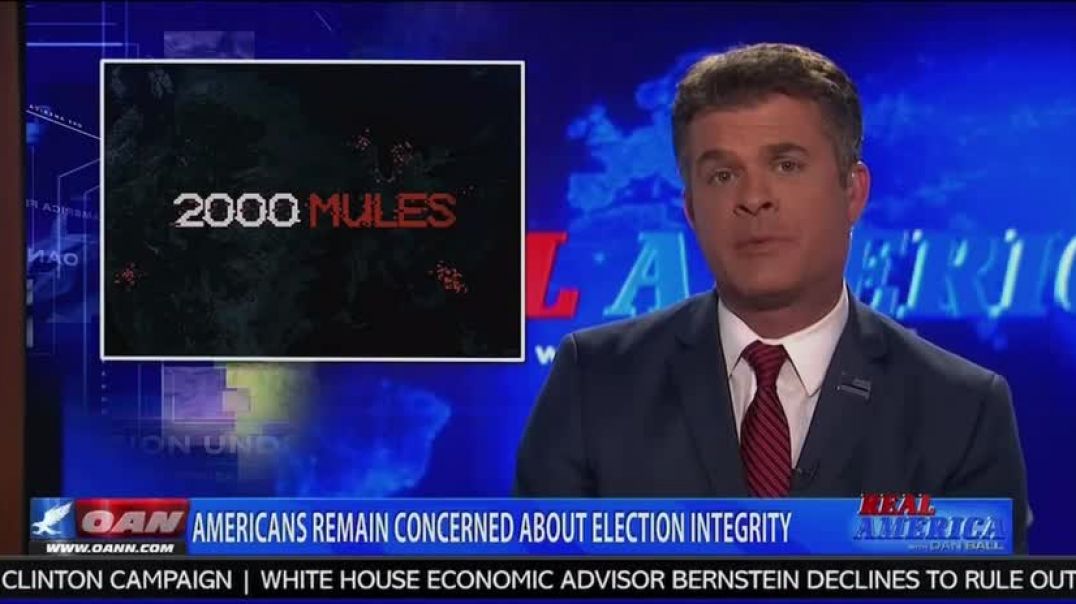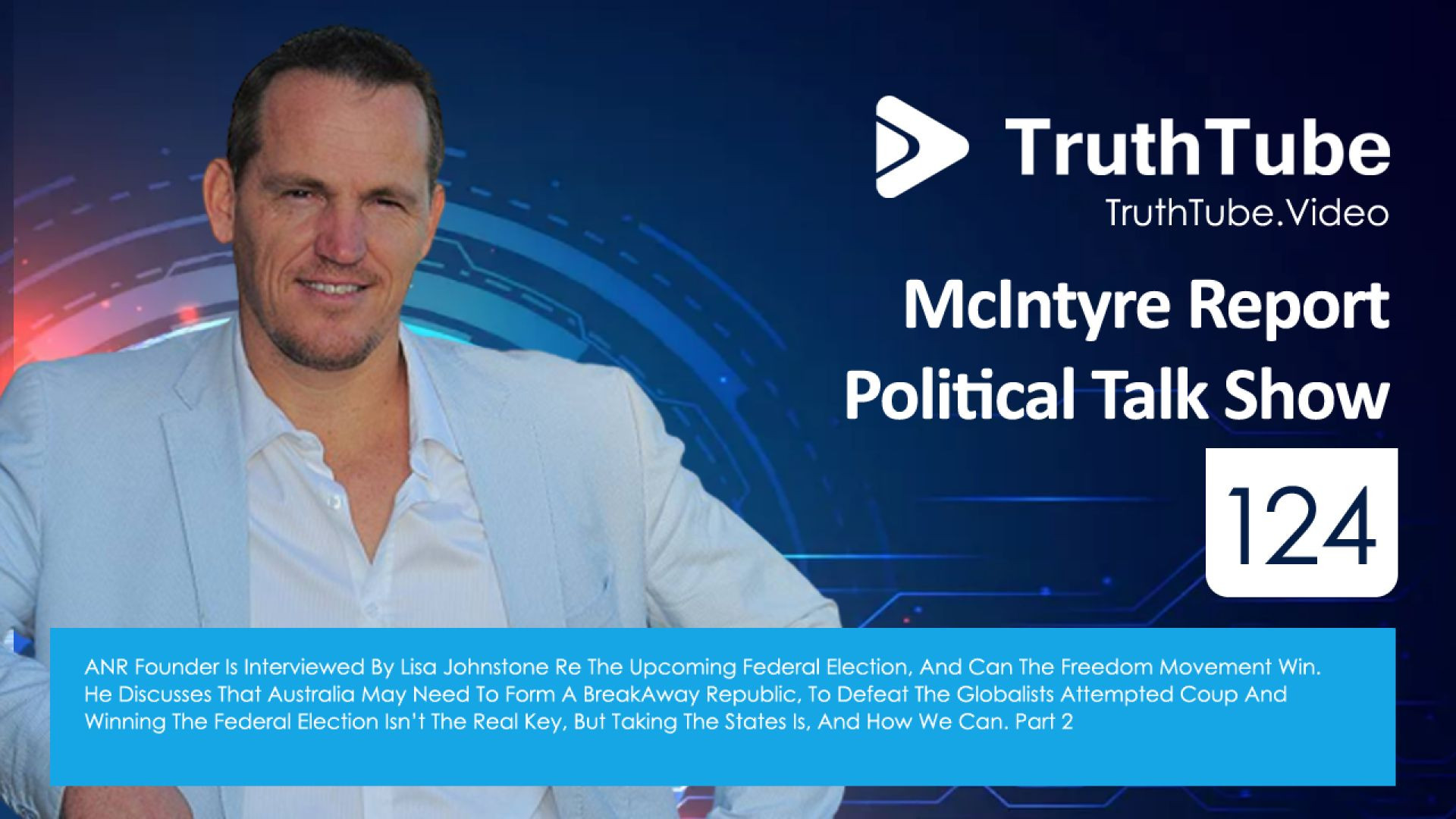Top videos
112 How Many Sports Stars Must Die From The Vaccines Before It’s Stopped And Who Do Russian Sanction
McIntyre Report Political Talk Show
Episode 112
How Many Sports Stars Must Die From The Vaccines Before It’s Stopped And Who Do Russian Sanctions Hurt The Most?
Donald Trump has called out host Piers Morgan for releasing a “deceptively edited” interview trailer, as well as alleging in the New York Post that the former president abruptly ended their conversation.
Trump has released an audio recording which appears to refute Morgan’s claim that the former president ended the interview by “abruptly jumping to his feet, looking hateful, and barking at the shocked crew”.
Trump’s spokesman described the incident to NBC as “a pathetic attempt to use President Trump as a way to revive the career of a failed television host.”
https://www.australiannational....review.com/state-of-
Dr. Mike Yeadon: "There are a group of people in the National Health Service who ordered and with physicians who dispensed three years worth of midazolam and morphine in a couple of three-week or four-week periods, coinciding, oddly enough, with huge numbers of deaths, including the people who you wouldn't have expected to die, [such as] someone who was 60 and not previously ill."
https://www.australiannational....review.com/health/3-
Dr. Peter McCullough reveals how long the spike protein stays in the human body and that Canada and Australia have purchased 5 & 7 YEARS worth of mRNA vaccines for EACH person:
"When you take a booster every 6 months, it's gonna be impossible to clear this stuff out of the human body."
Video here:
Join herbalism group: https://t.me/HerbalismHealing
Join us also on fb to strike the vaccine pushers there, join the group and invite all of your friends: https://www.facebook.com/groups/1649921685345780
Its not for nothing, we strike in the heart of the enemy
Follow us on tik tok as well: https://www.tiktok.com/@truckers4freedom/video/7091272229899488517?is_copy_url=1&is_from_webapp=v1&lang=en
https://www.australiannational....review.com/health/dr
OAN’s Dan Ball Opened His Show Tonight With His Thoughts on 2000 Mules After Attending the Watch Par
“After watching this movie, I will say this. There’s not one doubt in my mind that this election was rigged. Period. Point blank. End of story. The left can kiss my…
What they did to this country is one of the biggest acts of treason in our nation’s history.”
https://www.australiannational....review.com/state-of-
ANR Founder Is Interviewed By Lisa Johnstone Re The Upcoming Federal Election, And Can The Freedom M
McIntyre Report Political Talk Show
Episode 124
ANR Founder Is Interviewed By Lisa Johnstone Re The Upcoming Federal Election, And Can The Freedom Movement Win. He Discusses That Australia May Need To Form A BreakAway Republic, To Defeat The Globalists Attempted Coup And Winning The Federal Election Isn’t The Real Key, But Taking The States Is, And How We Can. Part 2
I've been saying for years — Black Lives Matter has been leading you astray. I love and forgive you all, but I'm going to need you to say you're sorry.
#CandaceOwens #DailyWire #Conservative #BLEXIT #BlackLivesMatter #BLM #Liberal #Democrat #SayHisName #SayHerName #SayTheirNames
#Shorts #Candace #CandaceOwens #CandaceOwensDocumentary #DailyWire #News #Politics #Documentary #Entertainment #GeorgeFloyd #GeorgeFloydDocumentary #BLM #BLMDocumentary #CandaceOwensBLM #CandaceOwensBLMDocumentary
At CNN's request, I prepared this video, but CNN never ran it on air. This just documents that I was trying to get the attention of the US on this important drug very early on (March 24, 2020) with this video and my posts on Medium.
Credit goes to Hong Kong billionaire Vanessa Hwang for first bringing Avigan to my attention in a WhatsApp message on March 18, 2020.
Today in my series of building a website for $12, we are going to go into actually using the static site generator Hugo to build one. I am going to walk you through step by step to install, build and render out a website.
Website ▶ https://ChrisStayte.com
Blog ▶ https://blog.chrisstayte.com
Twitter ▶ http://www.twitter.com/ChrisStayte
GitHub ▶ https://goo.gl/XMsQCS
Music ▶ Early - DJ Quads
The influence of Wall Street hedge funds is slowly creeping into rural America. #Tucker #FoxNews
FOX News operates the FOX News Channel (FNC), FOX Business Network (FBN), FOX News Radio, FOX News Headlines 24/7, FOXNews.com and the direct-to-consumer streaming service, FOX Nation. FOX News also produces FOX News Sunday on FOX Broadcasting Company and FOX News Edge. A top five-cable network, FNC has been the most watched news channel in the country for 17 consecutive years. According to a 2018 Research Intelligencer study by Brand Keys, FOX News ranks as the second most trusted television brand in the country. Additionally, a Suffolk University/USA Today survey states Fox News is the most trusted source for television news or commentary in the country, while a 2017 Gallup/Knight Foundation survey found that among Americans who could name an objective news source, FOX News is the top-cited outlet. FNC is available in nearly 90 million homes and dominates the cable news landscape while routinely notching the top ten programs in the genre.
Subscribe to Fox News! https://bit.ly/2vBUvAS
Watch more Fox News Video: http://video.foxnews.com
Watch Fox News Channel Live: http://www.foxnewsgo.com/
Watch full episodes of your favorite shows
The Five: http://video.foxnews.com/playlist/longform-the-five/
Special Report with Bret Baier: http://video.foxnews.com/playlist/longform-special-report/
The Story with Martha Maccallum: http://video.foxnews.com/playlist/longform-the-story-with-martha-maccallum/
Tucker Carlson Tonight: http://video.foxnews.com/playlist/longform-tucker-carlson-tonight/
Hannity: http://video.foxnews.com/playlist/longform-hannity/
The Ingraham Angle: http://video.foxnews.com/playlist/longform-the-ingraham-angle/
Fox News @ Night: http://video.foxnews.com/playlist/longform-fox-news-night/
Follow Fox News on Facebook: https://www.facebook.com/FoxNews/
Follow Fox News on Twitter: https://twitter.com/FoxNews/
Follow Fox News on Instagram: https://www.instagram.com/foxnews/
Kid Rock discusses his relationship with former President Trump on 'Tucker Carlson Tonight.' #FoxNews #Tucker
Subscribe to Fox News! https://bit.ly/2vaBUvAS
Watch more Fox News Video: http://video.foxnews.com
Watch Fox News Channel Live: http://www.foxnewsgo.com/
FOX News Channel (FNC) is a 24-hour all-encompassing news service delivering breaking news as well as political and business news. The number one network in cable, FNC has been the most-watched television news channel for 18 consecutive years. According to a 2020 Brand Keys Consumer Loyalty Engagement Index report, FOX News is the top brand in the country for morning and evening news coverage. A 2019 Suffolk University poll named FOX News as the most trusted source for television news or commentary, while a 2019 Brand Keys Emotion Engagement Analysis survey found that FOX News was the most trusted cable news brand. A 2017 Gallup/Knight Foundation survey also found that among Americans who could name an objective news source, FOX News was the top-cited outlet. Owned by FOX Corporation, FNC is available in nearly 90 million homes and dominates the cable news landscape, routinely notching the top ten programs in the genre.
Watch full episodes of your favorite shows
The Five: http://video.foxnews.com/playlist/lon...
Special Report with Bret Baier: http://video.foxnews.com/playlist/lon...
Fox News Primetime: https://video.foxnews.com/playlist/on...
Tucker Carlson Tonight: http://video.foxnews.com/playlist/lon...
Hannity: http://video.foxnews.com/playlist/lon...
The Ingraham Angle: http://video.foxnews.com/playlist/lon...
Fox News @ Night: http://video.foxnews.com/playlist/lon...
Follow Fox News on Facebook: https://www.facebook.com/FoxNews/
Follow Fox News on Twitter: https://twitter.com/FoxNews/
Follow Fox News on Instagram: https://www.instagram.com/foxnews/
'Tucker Carlson Tonight' host takes aim at Gen. Mark Milley's comments on critical race theory in the military. #FoxNews #Tucker
Subscribe to Fox News! https://bit.ly/2vaBUvAS
Watch more Fox News Video: http://video.foxnews.com
Watch Fox News Channel Live: http://www.foxnewsgo.com/
FOX News Channel (FNC) is a 24-hour all-encompassing news service delivering breaking news as well as political and business news. The number one network in cable, FNC has been the most-watched television news channel for 18 consecutive years. According to a 2020 Brand Keys Consumer Loyalty Engagement Index report, FOX News is the top brand in the country for morning and evening news coverage. A 2019 Suffolk University poll named FOX News as the most trusted source for television news or commentary, while a 2019 Brand Keys Emotion Engagement Analysis survey found that FOX News was the most trusted cable news brand. A 2017 Gallup/Knight Foundation survey also found that among Americans who could name an objective news source, FOX News was the top-cited outlet. Owned by FOX Corporation, FNC is available in nearly 90 million homes and dominates the cable news landscape, routinely notching the top ten programs in the genre.
Watch full episodes of your favorite shows
The Five: http://video.foxnews.com/playlist/longform-the-five/
Special Report with Bret Baier: http://video.foxnews.com/playlist/longform-special-report/
Fox News Primetime: https://video.foxnews.com/play....list/on-air-fox-news
Tucker Carlson Tonight: http://video.foxnews.com/playlist/longform-tucker-carlson-tonight/
Hannity: http://video.foxnews.com/playlist/longform-hannity/
The Ingraham Angle: http://video.foxnews.com/playlist/longform-the-ingraham-angle/
Fox News @ Night: http://video.foxnews.com/playlist/longform-fox-news-night/
Follow Fox News on Facebook: https://www.facebook.com/FoxNews/
Follow Fox News on Twitter: https://twitter.com/FoxNews/
Follow Fox News on Instagram: https://www.instagram.com/foxnews/
The rap star joins 'Tucker Carlson Today' for an exclusive interview on Fox Nation. #FoxNews #Tucker
Subscribe to Fox News! https://bit.ly/2vaBUvAS
Watch more Fox News Video: http://video.foxnews.com
Watch Fox News Channel Live: http://www.foxnewsgo.com/
FOX News Channel (FNC) is a 24-hour all-encompassing news service delivering breaking news as well as political and business news. The number one network in cable, FNC has been the most-watched television news channel for 18 consecutive years. According to a 2020 Brand Keys Consumer Loyalty Engagement Index report, FOX News is the top brand in the country for morning and evening news coverage. A 2019 Suffolk University poll named FOX News as the most trusted source for television news or commentary, while a 2019 Brand Keys Emotion Engagement Analysis survey found that FOX News was the most trusted cable news brand. A 2017 Gallup/Knight Foundation survey also found that among Americans who could name an objective news source, FOX News was the top-cited outlet. Owned by FOX Corporation, FNC is available in nearly 90 million homes and dominates the cable news landscape, routinely notching the top ten programs in the genre.
Watch full episodes of your favorite shows
The Five: http://video.foxnews.com/playlist/longform-the-five/
Special Report with Bret Baier: http://video.foxnews.com/playlist/longform-special-report/
Fox News Primetime: https://video.foxnews.com/play....list/on-air-fox-news
Tucker Carlson Tonight: http://video.foxnews.com/playlist/longform-tucker-carlson-tonight/
Hannity: http://video.foxnews.com/playlist/longform-hannity/
The Ingraham Angle: http://video.foxnews.com/playlist/longform-the-ingraham-angle/
Fox News @ Night: http://video.foxnews.com/playlist/longform-fox-news-night/
Follow Fox News on Facebook: https://www.facebook.com/FoxNews/
Follow Fox News on Twitter: https://twitter.com/FoxNews/
Follow Fox News on Instagram: https://www.instagram.com/foxnews/
New York Post's Miranda Devine joins 'Tucker Carlson Tonight' to discuss the top doctor's use of the media. #FoxNews #Tucker
Subscribe to Fox News! https://bit.ly/2vaBUvAS
Watch more Fox News Video: http://video.foxnews.com
Watch Fox News Channel Live: http://www.foxnewsgo.com/
FOX News Channel (FNC) is a 24-hour all-encompassing news service delivering breaking news as well as political and business news. The number one network in cable, FNC has been the most-watched television news channel for 18 consecutive years. According to a 2020 Brand Keys Consumer Loyalty Engagement Index report, FOX News is the top brand in the country for morning and evening news coverage. A 2019 Suffolk University poll named FOX News as the most trusted source for television news or commentary, while a 2019 Brand Keys Emotion Engagement Analysis survey found that FOX News was the most trusted cable news brand. A 2017 Gallup/Knight Foundation survey also found that among Americans who could name an objective news source, FOX News was the top-cited outlet. Owned by FOX Corporation, FNC is available in nearly 90 million homes and dominates the cable news landscape, routinely notching the top ten programs in the genre.
Watch full episodes of your favorite shows
The Five: http://video.foxnews.com/playlist/longform-the-five/
Special Report with Bret Baier: http://video.foxnews.com/playlist/longform-special-report/
Fox News Primetime: https://video.foxnews.com/play....list/on-air-fox-news
Tucker Carlson Tonight: http://video.foxnews.com/playlist/longform-tucker-carlson-tonight/
Hannity: http://video.foxnews.com/playlist/longform-hannity/
The Ingraham Angle: http://video.foxnews.com/playlist/longform-the-ingraham-angle/
Fox News @ Night: http://video.foxnews.com/playlist/longform-fox-news-night/
Follow Fox News on Facebook: https://www.facebook.com/FoxNews/
Follow Fox News on Twitter: https://twitter.com/FoxNews/
Follow Fox News on Instagram: https://www.instagram.com/foxnews/
Oregon education officials claim there is racism in mathematics; Libby Emmons joins 'Tucker Carlson Tonight' to react. #FoxNews #Tucker
Subscribe to Fox News! https://bit.ly/2vBUvAS
Watch more Fox News Video: http://video.foxnews.com
Watch Fox News Channel Live: http://www.foxnewsgo.com/
FOX News Channel (FNC) is a 24-hour all-encompassing news service delivering breaking news as well as political and business news. The number one network in cable, FNC has been the most-watched television news channel for 18 consecutive years. According to a 2020 Brand Keys Consumer Loyalty Engagement Index report, FOX News is the top brand in the country for morning and evening news coverage. A 2019 Suffolk University poll named FOX News as the most trusted source for television news or commentary, while a 2019 Brand Keys Emotion Engagement Analysis survey found that FOX News was the most trusted cable news brand. A 2017 Gallup/Knight Foundation survey also found that among Americans who could name an objective news source, FOX News was the top-cited outlet. Owned by FOX Corporation, FNC is available in nearly 90 million homes and dominates the cable news landscape, routinely notching the top ten programs in the genre.
Watch full episodes of your favorite shows
The Five: http://video.foxnews.com/playlist/longform-the-five/
Special Report with Bret Baier: http://video.foxnews.com/playlist/longform-special-report/
Fox News Primetime: https://video.foxnews.com/play....list/on-air-fox-news
Tucker Carlson Tonight: http://video.foxnews.com/playlist/longform-tucker-carlson-tonight/
Hannity: http://video.foxnews.com/playlist/longform-hannity/
The Ingraham Angle: http://video.foxnews.com/playlist/longform-the-ingraham-angle/
Fox News @ Night: http://video.foxnews.com/playlist/longform-fox-news-night/
Follow Fox News on Facebook: https://www.facebook.com/FoxNews/
Follow Fox News on Twitter: https://twitter.com/FoxNews/
Follow Fox News on Instagram: https://www.instagram.com/foxnews/om/
On January 20, the last day of the Obama administration, outgoing National Security Adviser Susan Rice stat down to write her final memo. #FoxNews #Tucker
FOX News operates the FOX News Channel (FNC), FOX Business Network (FBN), FOX News Radio, FOX News Headlines 24/7, FOXNews.com and the direct-to-consumer streaming service, FOX Nation. FOX News also produces FOX News Sunday on FOX Broadcasting Company and FOX News Edge. A top five-cable network, FNC has been the most-watched news channel in the country for 17 consecutive years. According to a 2018 Research Intelligencer study by Brand Keys, FOX News ranks as the second most trusted television brand in the country. Additionally, a Suffolk University/USA Today survey states Fox News is the most trusted source for television news or commentary in the country, while a 2017 Gallup/Knight Foundation survey found that among Americans who could name an objective news source, FOX News is the top-cited outlet. FNC is available in nearly 90 million homes and dominates the cable news landscape while routinely notching the top ten programs in the genre.
Subscribe to Fox News! https://bit.ly/2vBUvAS
Watch more Fox News Video: http://video.foxnews.com
Watch Fox News Channel Live: http://www.foxnewsgo.com/
Watch full episodes of your favorite shows
The Five: http://video.foxnews.com/playlist/longform-the-five/
Special Report with Bret Baier: http://video.foxnews.com/playlist/longform-special-report/
The Story with Martha MacCallum: http://video.foxnews.com/playlist/longform-the-story-with-martha-maccallum/
Tucker Carlson Tonight: http://video.foxnews.com/playlist/longform-tucker-carlson-tonight/
Hannity: http://video.foxnews.com/playlist/longform-hannity/
The Ingraham Angle: http://video.foxnews.com/playlist/longform-the-ingraham-angle/
Fox News @ Night: http://video.foxnews.com/playlist/longform-fox-news-night/
Follow Fox News on Facebook: https://www.facebook.com/FoxNews/
Follow Fox News on Twitter: https://twitter.com/FoxNews/
Follow Fox News on Instagram: https://www.instagram.com/foxnews/
THE WORST FAMILY ROADTRIPS EVER!! #shorts #comedy #tucker
DED 😂😂😂😂 #Tucker
The kid at school who takes his ball back... #comedy #shorts #lol #tucker


![3 Years Worth of Midazolam Suddenly Gone – “I Think [People] Were Being Murdered”](https://truthtube.video/upload/photos/2022/04/09573d7b0e27ba47fc1a20fd18ace3cb53bb321bRHekMbBUz1s5oy7A5Rmy.video_thumb_2834_11.jpeg)
















